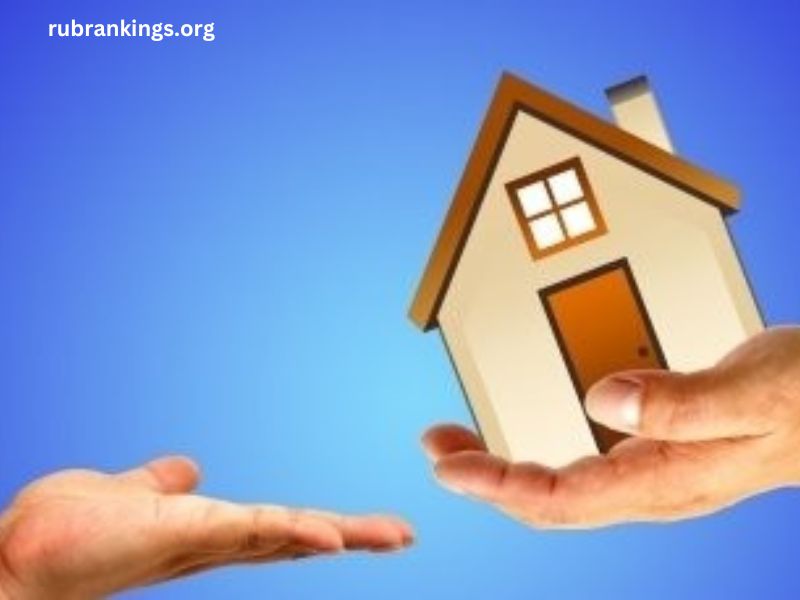Real estate transactions can be complex, with multiple factors influencing both the buying and selling process. Among these factors are “adverse conditions,” which can significantly impact a property’s value, desirability, or legal standing. Whether you’re a buyer, seller, or real estate professional, understanding what constitutes an adverse condition is essential for making informed decisions in the marketplace. This article will delve into what an adverse condition is, the types that exist, how they affect real estate transactions, and ways to address them.
Definition of Adverse Condition in Real Estate
In the context of real estate, an adverse condition refers to any factor that negatively impacts the value, usability, or appeal of a property. These conditions can range from physical issues like structural damage or environmental hazards to legal complications such as disputes over property lines or zoning violations. Adverse conditions can make it difficult to sell a property, reduce its market value, or even lead to legal challenges during or after a sale.
Types of Adverse Conditions
There are various categories of adverse conditions that can affect a property. Each type has its own set of challenges and may require different solutions. Below are some of the most common types:
1. Physical Adverse Conditions
These are the most visible types of adverse conditions and include issues that affect the physical state of the property. Some examples include:
- Structural Defects: Cracks in the foundation, leaking roofs, or other significant structural damage can deter potential buyers and lower property value.
- Water Damage: Flooding, mold growth, or leaks can be costly to repair and may also pose health risks.
- Pest Infestations: The presence of termites, rodents, or other pests can cause extensive damage and may require expensive extermination and repairs.
- Environmental Contamination: Properties located near hazardous waste sites or that have been exposed to toxic materials (e.g., asbestos, lead) may have their marketability severely diminished.
Addressing physical adverse conditions often involves inspections, repairs, or even legal actions to ensure the property is up to code and safe for occupancy.
2. Legal Adverse Conditions
Legal issues can be more challenging to identify and often require the expertise of a real estate attorney or title company. These conditions include:
- Title Defects: Problems with the property’s title, such as liens, unpaid taxes, or unresolved disputes over ownership, can delay or prevent a sale.
- Easements and Encroachments: An easement is a legal right for someone else to use part of the property (e.g., for utilities or access). Encroachments occur when a neighbor’s structure extends onto the property. Both can create complications for new owners.
- Zoning Violations: Properties that don’t comply with local zoning regulations (e.g., being used for commercial purposes in a residential area) may face fines or require costly adjustments to comply with the law.
Legal adverse conditions can significantly delay a transaction and may require negotiations, legal resolutions, or financial settlements to resolve.
3. Financial Adverse Conditions
Financial factors can also pose challenges in real estate transactions. Examples of financial adverse conditions include:
- Bankruptcy: If the seller is in financial distress or has filed for bankruptcy, the property sale may be complicated by legal or financial constraints.
- Foreclosure: Properties in foreclosure often face legal hurdles and may come with outstanding debts that need to be settled before the sale can proceed.
- Unpaid Property Taxes: Any unpaid property taxes become the buyer’s responsibility, which can deter potential purchasers.
In cases involving financial adverse conditions, real estate agents and attorneys can help navigate the complexities and ensure that all debts and financial obligations are settled before closing the transaction.
4. Neighborhood and External Adverse Conditions
The surrounding environment and neighborhood conditions can also affect the desirability and value of a property. These external adverse conditions may include:
- High Crime Rates: Properties located in high-crime areas may have lower values and be harder to sell.
- Poor School Districts: Properties in areas with poorly rated schools may be less attractive to families, which can reduce demand.
- Proximity to Nuisances: Properties located near noisy highways, airports, or industrial facilities may suffer from reduced value due to the inconvenience and potential health risks associated with pollution.
While external adverse conditions are often beyond a seller’s control, they can still have a significant impact on the property’s marketability and price.
Impact of Adverse Conditions on Real Estate Transactions
Adverse conditions can create various complications during a real estate transaction. They may delay the sale, reduce the property’s value, or even cause a deal to fall through entirely. Here’s how different parties in a real estate transaction may be affected:
1. Sellers
For sellers, adverse conditions often mean reduced property values and a smaller pool of interested buyers. Depending on the severity of the condition, sellers may need to invest in repairs or legal services to address issues before putting the property on the market. Sellers are also legally obligated to disclose any known adverse conditions to potential buyers. Failure to disclose can result in legal action later on, should the buyer discover the issue after the purchase.
2. Buyers
For buyers, discovering adverse conditions during the inspection or due diligence process can lead to renegotiations, delays, or even a decision to back out of the sale. Buyers must carefully assess the risks associated with any adverse conditions, including the potential costs of addressing them. In some cases, buyers may be able to negotiate a lower price or request that the seller fix certain issues before the sale is finalized.
3. Lenders
Mortgage lenders are also concerned with adverse conditions, as they want to ensure the property holds sufficient value to cover the loan. If adverse conditions significantly reduce the property’s value, the lender may deny the loan or require additional assurances (such as repairs or higher down payments) before proceeding.
How to Address Adverse Conditions
Once an adverse condition is identified, there are several ways to address it, depending on the nature of the issue:
1. Inspections and Repairs
For physical adverse conditions, a thorough inspection is essential. A professional home inspector can identify potential problems like water damage, structural defects, or pest infestations. Once identified, repairs may be necessary to bring the property up to standard. In some cases, buyers may request that the seller complete the repairs before closing, or they may negotiate a lower purchase price to account for the cost of the repairs.
2. Legal Resolutions
Legal adverse conditions often require the involvement of a real estate attorney. Issues such as title defects, zoning violations, and encroachments can usually be resolved through legal channels. For example, title defects may be cleared by paying outstanding debts or negotiating with other claimants, while zoning issues may require reapplying for proper permits or changing the property’s use.
3. Price Adjustments
If an adverse condition cannot be easily resolved, a common solution is to adjust the property’s sale price to reflect the issue. For instance, if the property is located in a high-crime area or near a noisy highway, buyers may request a reduction in price to compensate for the reduced desirability of the location.
4. Disclosure
One of the most important aspects of dealing with adverse conditions is proper disclosure. In most jurisdictions, sellers are required to disclose known adverse conditions to potential buyers. Failing to do so can lead to lawsuits, penalties, or even the reversal of the sale. Buyers should ask for full disclosure and conduct their own due diligence to identify any potential issues that might not be immediately apparent.
Conclusion
Adverse conditions in real estate can take many forms, ranging from physical damage and legal disputes to financial difficulties and neighborhood concerns. These conditions can affect the value and marketability of a property, making it essential for both buyers and sellers to identify and address them early in the transaction process. While some adverse conditions can be resolved through repairs or legal means, others may require price adjustments or careful negotiations. By understanding the nature of adverse conditions and how to handle them, all parties involved in a real estate transaction can minimize risk and ensure a smoother, more successful process.



